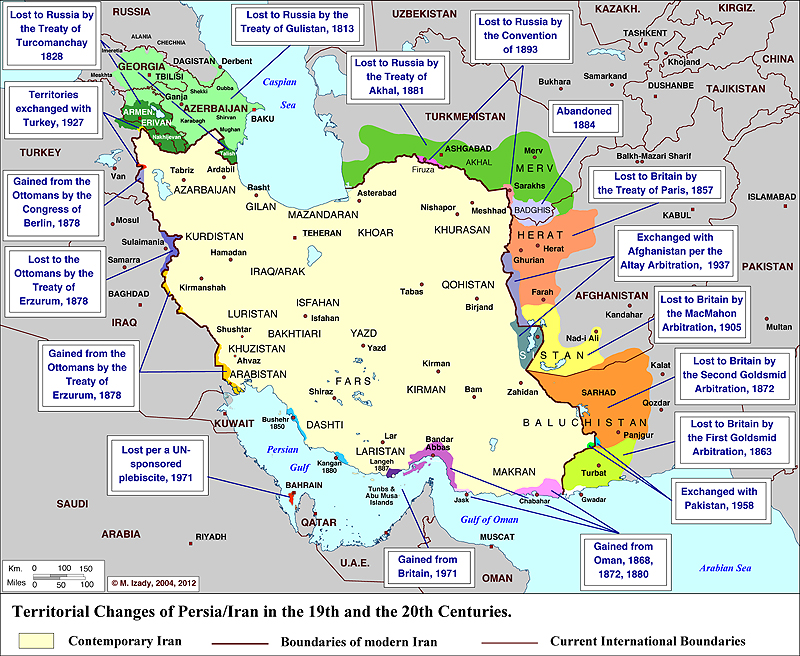
(Click the picture for a full-sized graphic)
On several occasions now, President Obama has stated that he has no policy to contain Iran and that, like President Bush, he will choose the option of preventative war to address it if need be.
It could be that American politics, in its infinite maturity, has put the word "containment" out of bounds. Or it could be that President Obama really has embraced the Bush Doctrine. Either way, it doesn't seem right to simply cast "containment" out of the conversation, especially when "containing" Iran itself is well within the means of the U.S.
Containing a country implies that it is otherwise expansionary. The Soviet Union had to be "contained" because the Red Army had moved across borders, absorbed new territory and had the military wherewithal to potentially do it again. Similarly, Saddam's Iraq had proven on two different occasions a willingness to use force to acquire territory. Iran, we're told, sees itself as the rightful hegemonic power in the Middle East.
But here's the thing: they aren't.
Even with a nuclear weapon, few people believe they'll be marching Revolutionary Guard divisions into neighboring capitals. Pakistan's nuclear weapons haven't made it the hegemon of South Asia. Israel, with 200 nuclear weapons, is not considered the hegemon of the Middle East. What the U.S. would actually wind up "containing" in the event that Iran went nuclear are its own allies, who might seek nuclear deterrents on their own. That's obviously a challenge but it needs to measured against the costs and risks of starting a fresh war in the Middle East.
(Image via The Gulf/2000 Project)

